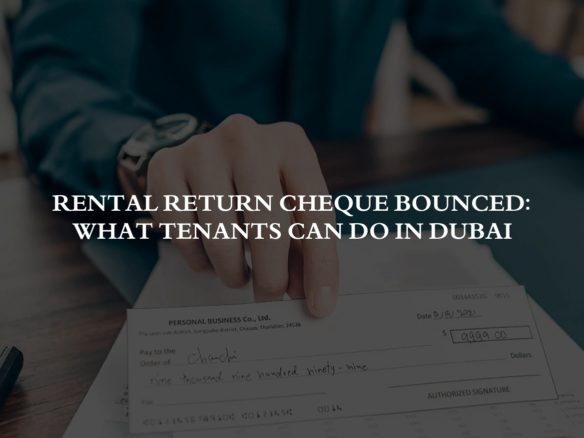Table of Contents
Buying your first home is a big decision, and in a fast-changing market like Dubai, it can be both exciting and stressful. The city continues to draw a wide range of expats and long-term residents, which keeps the demand for homes high. This guide has important tips and advice for First Time Home Buyers in the Dubai real estate market, whether you want to buy a home to live in, get a long-term residency, or just stop renting.
This complete guide for First Time Home Buyers will help you make smart choices at every step of the way, from learning how to get a loan as a first-time home buyer to looking into new options like rent-to-own.
Why Dubai Is an Ideal Place for first time home buyers
Dubai has become one of the most desirable places in the world to buy real estate. It is a great choice for first time home buyers because it has no property tax, high rental yields, world-class infrastructure, and clear rules. There are many different kinds of property in the city, from cheap studios in the suburbs to upscale apartments in high-end areas like Downtown Dubai or Dubai Marina.
The UAE government’s long-term plan includes getting more people, both residents and expats, to own their own homes. Property-linked visas and easier financing structures are just two examples of how the market is now easier to get into than ever before.
First Time Home Buyers Tips and Advice: Getting Started

The first steps of your journey are very important if you are buying a home in Dubai for the first time. Making a hasty purchase without doing your homework can cost you a lot of money. Here are some important things you should do to get ready:
Know where you stand financially
Check your finances before looking at properties. Find out how much money you make each month, how much you spend each month, and how much you have saved. Most importantly, think about the upfront costs like the down payment, the Dubai Land Department (DLD) fees, and the registration fees. These can be worth as much as 7–8% of the property’s value.
Check your credit score, income documentation, and current debts to get a clear picture of whether you can get a loan.
Pick the Right Place
- Dubai is a city with many different communities, each with its own way of life. For instance:
- Families might like places like Arabian Ranches, Jumeirah Village Circle (JVC), or Mirdif better.
- Young professionals often choose to live in Dubai Marina, Business Bay, or Downtown Dubai.
- People who want to save money can look at places like Al Furjan or International City.
First Time Home Buyers Tips and Advice: Getting Started
- Choose Between Off-Plan and Ready Property Dubai has both ready-to-move-in and off-plan options.
- If you want to move in right away, ready properties are the best choice.
- Off-plan homes are usually cheaper and have more flexible payment plans, but there is a risk that they won’t be delivered on time.
First Time Home Buyer Guide: Step-by-Step Process in Dubai
There is a clear legal and administrative process for buying your first property in Dubai. This is what it looks like:
Step 1: Get Pre-Approved for a Mortgage
Before you start looking for a house, go to a bank and get pre-approved for a loan for First Time Home Buyers. This will help you figure out how much money you can borrow and make a clear budget. Getting pre-approved also shows sellers that you are a serious buyer.
You will need to send in things like copies of your passport, your Emirates ID (if you live there), your salary slips, and your bank statements. Some banks will also give you pre-approval online within 24 to 48 hours.
Step 2: Hire an Agent Who Is RERA-Certified
You need a licenced real estate agent who is registered with Dubai’s Real Estate Regulatory Authority (RERA) to be successful. They not only help you narrow down your property choices based on what you want, but they also make sure that all negotiations and paperwork are done right. Make sure your agent has an RERA licence and that they know a lot about the area you’re interested in.
Step 3: Find the property and make it yours.
Go to a lot of different properties to see how prices and trends are changing. Look at more than just the house. Look at the building’s amenities, the neighborhood’s infrastructure, and the area’s plans for future development. Once you’ve found a match, talk about the price and make sure you agree on the terms.
Step 4: Sign the Agreement to Sell
When the deal is done, you will sign the Memorandum of Understanding (Form F) and pay a 10% deposit to hold the property. This agreement is legally binding and spells out all the terms and conditions.
Step 5: The bank gives you a final mortgage offer and a value for your home.
Your bank will now do a property valuation to make sure it is worth what it says it is. Once the mortgage is approved, the last steps can begin. This includes the bank sending out a final offer letter.
Step 6: Registering and transferring DLD
The last step is to register the property with the Dubai Land Department (DLD). Once you pay the fees, your ownership is officially recorded, and you will get the title deed in your name. Congratulations! You now own a home in Dubai!
First Time Home Buyer Loan Options in Dubai

A lot of first time home buyers are worried about how they will pay for their new home. Dubai banks offer a number of loan packages that are designed to fit different income levels and residency statuses.
Who Can Get a Loan in the UAE
- Minimum monthly income: AED 15,000
- Maximum time: 25 years
- 20% down payment for properties worth less than AED 5 million
- You can choose between fixed and variable rates.
Who Can Get a Loan if They Don’t Live in the Area
People who don’t live in Dubai can also get home loans there, but their choices are a little more limited. Requirements are
- Verified income from the country where you live
- 25–30% down payment
- A valid passport and proof of employment or business
Recommended Banks for first time home buyers
- Emirates NBD is a good bank for first time home buyers.
- ADIB, or Abu Dhabi Islamic Bank
- Mashreq
- First Abu Dhabi Bank (FAB)
- Standard Chartered
It’s best to compare rates and terms before moving forward because each bank has its own rules. Some developers also work with banks, which may make it easier to get approved and lower rates.
Rent to Own for First Time Home Buyers: A Different Way
Not everyone is ready to take out a mortgage. In these situations, Dubai’s first-time homebuyer rent-to-own plans are a flexible way to buy a home.
How Rent-to-Own Works
You rent a property for a set amount of time, usually three to five years, and then you have the option to buy it at the end. Part of your monthly rent goes towards the purchase.
This is great for buyers who:
- Don’t have a lot of money to put down up front
- Have a credit history that isn’t consistent
- Need time to get a long-term visa to live in the US
- With rent-to-own, you can live in your future home and build equity at the same time. Several developers in Dubai now let you rent-to-own both ready-made and off-plan homes.
Pros and Cons Good things about it:
- Low cost to get in
- Renting can help you build equity.
- No need for a mortgage right away
Drawbacks:
- Could end up costing more than buying directly
- If you don’t finish the purchase, you might lose some of your payments.
- Before you sign a rent-to-own agreement, make sure to read the fine print and talk to a lawyer who specialises in real estate.
In conclusion
Dubai is still one of the best places for first-time homebuyers because it has low taxes, a lot of different types of homes, and more and more help for expats. If you’re looking into first-time home buyer loans or a rent-to-own option, doing the right things early on can help you make a smart investment that will pay off in the long run.
This guide for First Time Home Buyers will help you confidently enter the Dubai real estate market. You can make your dream of owning a home in Dubai come true by following these tips and working with professionals you can trust.
FAQ (Frequently Asked Questions)
Along with the property price, you should expect to pay around 7–8% up front for things like the DLD registration fee (4%), the agency commission (2%), the trustee fee, the mortgage registration (if there is one), and the valuation fee for purchases that are funded.
It’s up to you what you want. Off-plan homes have more flexible payment plans and lower entry costs, but you have to wait for handover. If you want to move in or rent out a ready property right away, you’ll need to pay for it in full or show that you can get a credit.





Join The Discussion